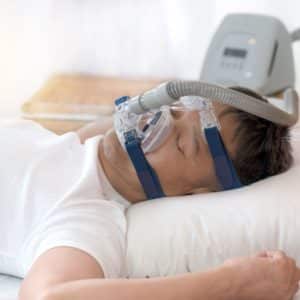Kids Can Have OSA, Too

Symptoms
In patients with OSA, the airway closes as they sleep. This means a reduction in airflow, which triggers the body to wake up. A person with OSA may not even realize they are waking up many times throughout the night, but this can have very damaging results.
A child with OSA may be very restless while they sleep, wet the bed, or have night terrors. They may sweat excessively at night, snore, and breathe through their mouth. Perhaps most disconcertingly for parents, they often pause in their breathing.
The effects of OSA extend to the daytime as well. A child with this disorder may be hyperactive and have difficulty paying attention in school. They may also have learning and/or behavioral problems.
Risk factors and complications
Down syndrome, neuromuscular disease, cerebral palsy, and sickle cell disease are all risk factors for OSA. Obesity can also play a factor, as can enlarged tonsils and adenoids.
Besides the problems a child with OSA might have at school, there are also possible physical complications that can arise, including heart issues and a failure to grow.
Treatment
Continuous positive airway pressure (CPAP) is a common treatment for patients with OSA, including children. This involves a mask worn over the face, which is connected to a device that blows air into the airway. However, many adults find that this mask is bulky and uncomfortable and can make it almost as difficult to sleep as OSA does. If it is this difficult for adults to adjust to, imagine how hard it would be for a child!
However, there is another option. Dr. Marc Levin at eos dental sleep in Philadelphia can treat OSA by fitting patients with an oral appliance to improve air flow. Call (215) 241-0700 today for more information on OSA and oral appliance therapy!
